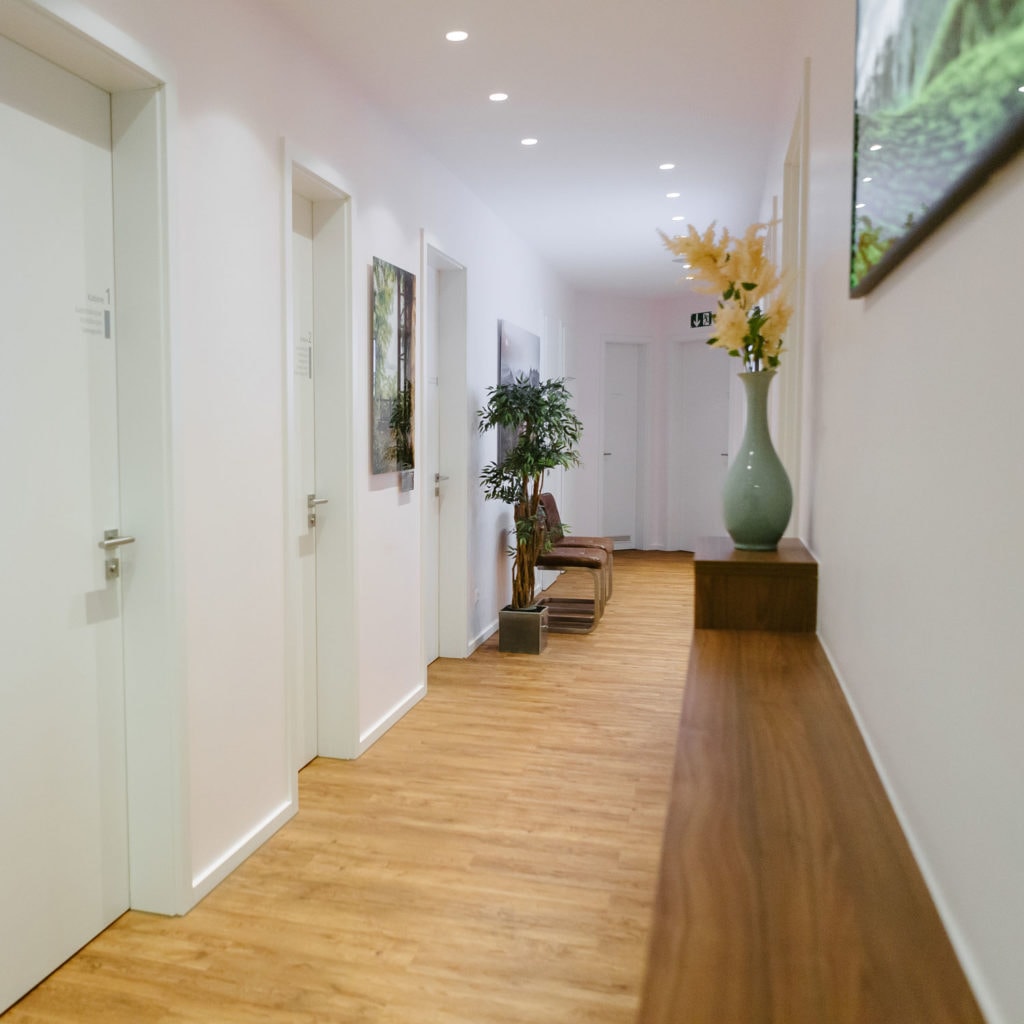Gastroscopy in Leipzig

Our standards
State-of-the-art technology meets empathy
During gastroscopy, we examine your esophagus, stomach and duodenum. Thanks to the symbiosis of years of experience, comprehensive expertise and state-of-the-art technologies, even the smallest changes, which can represent a preliminary stage or an early stage of a malignant disease, can be detected at an early stage and appropriate treatment can be initiated.
Your doctor
This is how a gastroscopy works
Step 1
Preparation
The gastroscopy requires that you appear sober. This means that ideally you should not eat any food from 6 p.m. on the day of the examination and no drinks from 10 p.m. onwards.
In addition, you should refrain from smoking on the day of the procedure. Water in small quantities, however, is permitted. Please also inform the practice team if you are currently taking any medication.
Our practice team will also be happy to help you if you have any questions about the examination.
Step 2
Examination
In a consultation prior to the exam, Dr. Gindensperger will discuss your medical history with you and give you an overview of the gastroscopy procedure.
The procedure itself then takes about 5-7 minutes. By using advanced technologies, Dr. Gindensperger obtains a precise image of the esophagus, stomach and co and can thus detect even the smallest changes in the mucosa and intervene accordingly at an early stage.
If desired, we are happy to offer you sedation and/or anesthesia of the pharynx. Depending on the findings, biopsies may be taken for histology or rapid tests.
Step 3
After the examination
Usually, you will be allowed to eat (ideally light whole foods) and drink again immediately after the examination. If you have received sedation, you must bring a companion with you to pick you up from the practice and are also no longer allowed to actively participate in traffic or sign important documents on this day.
In a separate consultation, Dr. Gindensperger evaluates the results of the examination with you. If there are any findings that require treatment, she will also explain the options for further action.
Frequently asked questions
For best possible results, you should not eat any food from 6 p.m. on the day of the gastroscopy and you should not drink anything from 10 p.m. onwards.
You should also not smoke on the day of the examination itself. However, it is permitted to take small sips of water.
No. The gastroscopy must be performed on an empty stomach. Therefore, you should not eat any food from 6 pm on the day of the examination.
You can usually eat and drink again immediately after the gastroscopy. If the examination was performed with the help of sedation, you will not be allowed to actively participate in traffic or sign important documents on that day. In addition, you must bring a companion with you to pick you up from the practice.
You should start with light whole food after the examination.
Gastroscopy is used to diagnose diseases of the esophagus, stomach and duodenum. Corresponding diseases in this area, such as ulcers, inflammations or even carcinomas can therefore be detected by the examination.
Yes. Even early-stage cancer that has not yet caused any other symptoms can be reliably detected by gastroscopy.
The earlier a cancer is diagnosed, the better the prospects for a cure.
The entire procedure takes no more than 5-7 minutes. You can leave the practice directly after a short stay afterwards. If you have received sedation, you will need to bring a companion to pick you up from the office.
To make the examination as comfortable as possible for you, we offer sedation or local anesthesia of the throat upon request.
Gastroscopy is one of the most reliable examinations for early detection of cancer and other diseases of the esophagus, stomach and duodenum.
If you experience any of the following symptoms, we recommend that you have a gastroscopy:
- persistent / recurring heartburn
- Dysphagia (difficulty swallowing), pain when swallowing or the feeling of poor passage of food through the esophagus
- Persistent upper abdominal pain
- Persistent or recurrent nausea or vomiting
- unexplained anemia
- unintentional weight loss
- unexplained persistent diarrhea
- Occurrence of black stools
- Control after gastric surgery and in case of proven ulcers
- Incidence of stomach cancer in blood relatives
Furthermore, gastroscopy is offered as a preventive examination at the patient's request. If you have any questions about this, our practice team will be happy to advise you by telephone or during an initial consultation.
Usually, it is not necessary to stop taking medication for a gastroscopy. In some cases, however, it may be necessary to stop taking blood-thinning medications beforehand.
Ideally, you should let our practice team know which medications you are currently taking before the procedure. We will then advise you whether certain medications should be discontinued.
Yes, usually your private health insurance will cover the costs of the examination.
